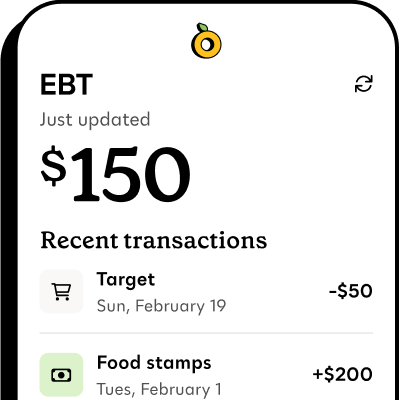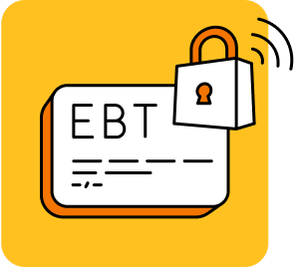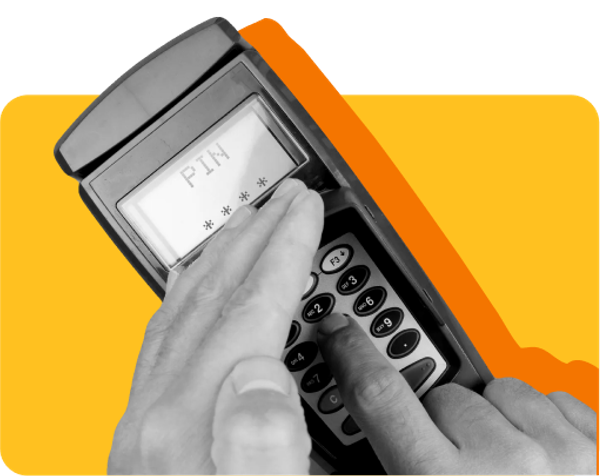Can undocumented immigrants get food stamps (SNAP)?


Additional expert review by
- Who benefits from SNAP?
- SNAP eligibility for immigrant households
- Can green-card holders get SNAP benefits?
- Can Deferred Action for Childhood Arrivals (DACA) recipients get SNAP benefits?
- Do I qualify for SNAP if my spouse doesn’t?
- Can my children qualify for SNAP if I don’t?
- Can I get SNAP benefits if I don’t speak English?
- Will participating in SNAP affect my immigration status?
- How to apply for SNAP
- Do I have to provide proof of my immigration status to apply for SNAP?
- Do I have to provide my Social Security number (SSN) to apply for SNAP?
- How long does it take to get SNAP benefits?
Table of contents
- Who benefits from SNAP?
- SNAP eligibility for immigrant households
- Can green-card holders get SNAP benefits?
- Can Deferred Action for Childhood Arrivals (DACA) recipients get SNAP benefits?
- Do I qualify for SNAP if my spouse doesn’t?
- Can my children qualify for SNAP if I don’t?
- Can I get SNAP benefits if I don’t speak English?
- Will participating in SNAP affect my immigration status?
- How to apply for SNAP
- Do I have to provide proof of my immigration status to apply for SNAP?
- Do I have to provide my Social Security number (SSN) to apply for SNAP?
- How long does it take to get SNAP benefits?
No, undocumented immigrants can’t get SNAP benefits, also known as food stamps or EBT. Some people who aren’t U.S. citizens may qualify for SNAP benefits, including people who have worked in the U.S. for a certain number of years or have specific immigration statuses, like refugees.
There’s a lot of misinformation about the impact of SNAP participation on immigration status. If you’re not sure whether you qualify, the best way to see if you’re eligible is to apply through your state benefits portal or local SNAP office. Getting SNAP benefits does not count as a public charge and won't impact your immigration status.
That means you and your family can't be deported or denied entry just for getting SNAP benefits. Participating in SNAP alone also won’t make it more difficult to get permanent residency or citizenship.
While undocumented immigrants aren't eligible for SNAP, they may qualify for other local benefits and can apply on behalf of eligible family members.

Propel is the #1-rated EBT balance checking app
Who benefits from SNAP?#who-benefits-from-snap
SNAP benefits help millions of Americans put food on the table while freeing up money for other basic needs like rent and medical care. The program serves as a vital lifeline for working families, children, older adults, and people with disabilities who are struggling to make ends meet.
- SNAP reaches 1 in 8 people in the U.S., including 1 in 5 children
- 86% of SNAP benefits go to households that include a child, elderly person, or person with disabilities
- 92% of SNAP benefits go to households at or below the poverty line
- 96% of SNAP benefits are spent within a month, boosting local economies
SNAP adapts to support people through life's changes. If you’re a low-wage worker, SNAP can help fill the gap if your hours are cut or you’re between jobs. SNAP benefits decrease gradually as people earn more, making it easier for families to work toward financial stability.
SNAP eligibility for immigrant households#snap-eligibility-for-immigrant-households
While undocumented immigrants can’t get SNAP benefits, certain categories of immigrants in the U.S. may be able to qualify, assuming they meet the regular SNAP income limits and other eligibility rules.
Certain immigrant groups may be able to get SNAP benefits if they meet the income limits (and any other requirements), including:
- Naturalized U.S. citizens
- Humanitarian immigrants (refugees, asylees, trafficking/domestic violence survivors, and victims of other serious crimes)
- Special immigrant visa holders
- Certain Native Americans born outside the U.S.
- Lawful permanent residents (green-card holders) meeting specific criteria
Can green-card holders get SNAP benefits?#can-green-card-holders-get-snap-benefits
Yes, green-card holders can get food stamps. Keep in mind that you may need to wait five years after receiving your green card to be eligible for SNAP. Green-card holders can get SNAP benefits if they meet one of the following conditions:
- Have lived in the U.S. for at least five years
- Have worked for at least 10 years or 40 qualifying work quarters (your work history can come from a combination of your own work, your spouse’s work, or your parents’ work before you turned 18)
- Are under age 18
- Are receiving disability benefits
- Were lawfully residing in the U.S. and 65 or older on August 22, 1996
- Have military ties (are a veteran, on active duty, or are a spouse or child of a veteran or active-duty service member)
The five-year wait may be waived for those with military ties, disability payments, children under 18, or sufficient work history.
In some states—like California, Minnesota, and Washington—green-card holders can get state-funded food assistance if they’ve arrived in the U.S. less than five years ago.
Can Deferred Action for Childhood Arrivals (DACA) recipients get SNAP benefits?#can-deferred-action-for-childhood-arrivals-daca-recipients-get-snap-benefits
No, DACA recipients (sometimes called “Dreamers”) are not considered qualified non-citizens under SNAP rules, meaning they can’t get SNAP benefits.
Do I qualify for SNAP if my spouse doesn’t?#do-i-qualify-for-snap-if-my-spouse-doesnt
Yes, you can receive benefits even if others in your household don't qualify, but all household income must be reported. You’ll only need to submit personal information, like birthdays, immigration status, and Social Security Numbers, for eligible members of the household who are applying for benefits.
SNAP fact
SNAP considers households to be people who buy and prepare food together.
Can my children qualify for SNAP if I don’t?#can-my-children-qualify-for-snap-if-i-dont
Yes, children who are citizens or have a qualifying immigration status can receive SNAP even if their parents aren’t eligible. If you do not have a qualifying immigration status and cannot apply for your own SNAP benefits, you can still apply on behalf of your kids if they’re eligible.
SNAP applications require the applicants’ names, birthdays, and income information, but only eligible members need to provide Social Security Numbers and immigration status.
SNAP fact
You don’t need to disclose the immigration status of anyone in your household who’s not eligible, since you’re not requesting benefits for those people.
Can I get SNAP benefits if I don’t speak English?#can-i-get-snap-benefits-if-i-dont-speak-english
Yes, you can apply for and receive SNAP benefits ( as long as you’re eligible) if you don’t speak English. Federal law requires state agencies to offer SNAP information and services in multiple languages. Ask your SNAP agency for free interpreter services and translated documents.
Will participating in SNAP affect my immigration status?#will-participating-in-snap-affect-my-immigration-status
No, SNAP participation won't affect your immigration status, your ability to get or keep a green card, or your path to citizenship. While cash assistance, Social Security benefits, and long-term institutional care may impact immigration cases, SNAP and healthcare benefits won't. Consult an immigration lawyer for specific advice.
How to apply for SNAP#how-to-apply-for-snap
If you think you may be eligible, you can apply for food stamps through your state's SNAP program. You’ll need to:
- Complete the application online, in-person, or via mail
- Do a phone or in-person interview
- Submit verification documents
Eligibility depends on monthly income, household size, and immigration status. Assets like savings, cars, or homes typically don't affect SNAP eligibility.
Do I have to provide proof of my immigration status to apply for SNAP?#do-i-have-to-provide-proof-of-my-immigration-status-to-apply-for-snap
Yes, but only for household members who will be receiving benefits. If you’re applying on behalf of someone else, you don’t need to share your immigration status.
Do I have to provide my Social Security number (SSN) to apply for SNAP?#do-i-have-to-provide-my-social-security-number-ssn-to-apply-for-snap
Yes, but only for household members who will be receiving benefits. If you’re applying on behalf of someone else, like a child or other relative, you need to share their Social Security Number, not yours.
How long does it take to get SNAP benefits?#how-long-does-it-take-to-get-snap-benefits
After you submit your application, your state has 30 days to determine if you qualify for SNAP. You’ll need to submit any required documents (like pay stubs, visas, work permits, and expenses) and complete a phone interview before you get a decision and benefit amount.
You may be able to get food stamps in seven days or less through emergency (expedited) processing if:
- You have $150 or less in monthly income and $100 or less cash
- Your monthly housing costs are more than your income and cash combined
- You have $100 or less on hand and you’re a migrant worker
Remember: For fastest service, apply in person with an identification card (ID) if you have one.








